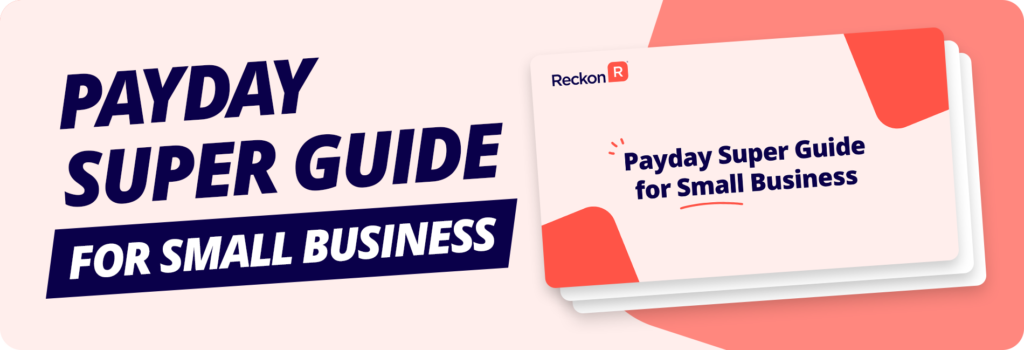TABLE OF CONTENTS
- What is a payroll officer?
- Payroll officer job description
- Skills needed to become a payroll officer
- Qualifications and experience
- Types of payroll officers
- Payroll officer work environment
- Job outlook and career progression
- Responsibilities and compliance
- Payroll software and technology
- Becoming a payroll officer: Next steps
Being a payroll officer means you’re a big part of the organisation. It’s your responsibility to make sure every employee is compensated correctly and on time, and you also need to keep meticulous records and make sure the business complies with all of its tax and legal requirements.
If you’re interested in a career in payroll services, read on for the most important information about what a payroll officer does, their responsibilities, the qualifications you’ll need, as well as how to successfully build a career in this vital business position.
What is a payroll officer?
A payroll officer is a professional who processes employee wages and takes care of deductions, including taxes and superannuation contributions. Their day-to-day role can involve tasks like administering payroll and maintaining payroll records so that the business is in compliance with the latest financial regulations and internal policies.
Payroll officers need good organisational skills as well as interpersonal capabilities; they are highly valued in most industries around Australia.
Payroll officer job description
While it will depend on the sector and the business itself, a payroll officer’s role is usually very detail-oriented. You’ll need to master several responsibilities, including but not limited to:
Administering payroll
Payroll officers process payroll for organisations by calculating weekly wages or monthly employee salaries based on hours worked and overtime. This usually means collecting and reviewing timesheets, making sure all collated information is accurate, as well as tackling any discrepancies as soon as possible.
Calculating payroll taxes and deductions
Tax must be calculated accurately during payroll. Payroll officers apply the correct payroll taxes, including pay-as-you-go (PAYG) withholding, super contributions, and other deductions (e.g. employee benefits). They must comply with all ATO guidelines, remitting payments correctly and on schedule.
Keeping good payroll records
Payroll officers create and oversee new employee records, update existing data, manage the handling of sensitive information confidentially and more. Organised and, most importantly, accurate payroll records help to streamline daily payroll functions and must be kept in case of audits or compliance checks.
Preparing monthly and yearly payroll statements
Payroll officers produce monthly and annual payroll statements that break down all salary payments, tax deductions, benefits and other financials that have been paid throughout the period. Yearly payroll statements are helpful for the organisation’s financial reporting and employee tax reporting obligations.
Skills needed to become a payroll officer
To carve out a long and successful career as a payroll officer, you’ll need a combination of technical knowledge and soft skills. Expect your employer to verify that you have:
- Attention to detail: Precision is the name of the game in payroll administration. Mistakes can cause massive compliance headaches, as well as angry employees and financial discrepancies.
- Organisational skills: Payroll officers must wear lots of hats and handle numerous tasks simultaneously. Good organisational skills will help you prioritise these responsibilities and stay efficient.
- Accounting and bookkeeping knowledge: You’ll need substantial proficiency in basic accounting principles and bookkeeping to handle a business’s payroll.
- Communication skills: The art of good communication is necessary for answering employee queries, resolving payroll-related issues, liaising with human resources and accounting departments, and handling any financial disputes (both internal and external).
- Proficiency with payroll software: Being familiar with payroll software like Reckon will streamline your daily payroll functions and boost your productivity on the job.
Qualifications and experience
While formal qualifications might not always be mandatory, depending on the job you are going for, the vast majority of employers will prefer payroll officers with a relevant higher-education degree or certification:
Vocational qualifications
The most common qualification is a Certificate III in Accounts Administration, which arms students with foundational skills in payroll administration, bookkeeping, accounting practices and more. You’ll graduate well-prepared for entry-level roles as payroll clerks.
Higher education
Advancing your career to the position of senior payroll officer (or above) will likely demand that you attain higher qualifications, like a Diploma in Payroll Services, Diploma in Human Resources Management, or a Bachelor’s degree in Business or Accounting.
Getting practical experience
Like most roles, experience is highly valued in payroll services. Starting as a payroll clerk or accounts assistant will give you real-world and practical exposure to payroll processing. Internships and entry-level roles can be great opportunities to get hands-on experience, which you can leverage to advance to higher payroll administration roles.
Types of payroll officers
There are generally two types of payroll officers:
- Internal payroll officers: Employed at a single organisation. You’ll handle payroll processing for the company’s employees exclusively, managing internal payroll policies, preparing monthly and annual reports, collaborating with human resources and accounting teams, and more.
- External payroll officers: You’ll work with payroll service providers or accounting firms to handle payroll processing for multiple clients. You’ll need to understand multiple client policies and manage a wide range of differing payroll schedules.
Payroll officer work environment
Because payroll officers work in almost every industry, including healthcare, retail, education, construction, and professional services, there’s no one specific work environment to expect. At its core, you’ll likely be working within the organisation’s human resources or accounting department. Payroll officers can expect to operate within standard office hours, although occasional overtime might be needed during peak periods like end-of-month processing and end of the financial year.
With more and more businesses becoming increasingly reliant on digital solutions, payroll officers now have the flexibility to work remotely or in a hybrid setting. This can be an attractive drawcard for those who want a career that is suitable for flexible working arrangements.
Job outlook and career progression
The demand for qualified payroll officers is as strong as ever in Australia. Single touch payroll (STP) has increased the need for highly skilled payroll professionals who have up-to-date knowledge of regulatory compliance.
Career advancement opportunities are also numerous. By seeking out and attaining extra qualifications and experience, you can progress from an entry-level payroll officer to more senior roles very quickly. Alternatively, you might decide to transition into related careers, including human resources management, compliance officer roles, office administration or something else entirely.
It’s a good idea to commit to continuous professional development and upskilling so that you are seen as a competitive, highly valued worker within your organisation.
Responsibilities and compliance
- Making accurate and timely payments for staff salaries.
- Following government tax regulations and employment standards to the letter of the law.
- Managing employee benefits.
- Preparing detailed payroll records and reports for compliance audits.
Diligent payroll workers are invaluable as they help protect businesses from potential financial penalties or legal complications around payroll errors and non-compliance.
Payroll software and technology
Payroll administration is becoming more and more complex with the introduction of new technologies, so workers need to be proficient in a variety of payroll software, as different businesses will use different platforms. The good news is that these technologies make payroll processing and record-keeping much more accurate, and you can do more timely reporting while staying on top of your compliance requirements.
Becoming a payroll officer: Next steps

Ready to become a payroll officer and join the workforce? To succeed in this important role, there are a few main steps to follow:
- Study for a Certificate III in Accounts Administration or equivalent qualification.
- Get relevant work experience through entry-level roles, internships, or even volunteering in administrative positions.
- Hone your technical skills in payroll software and get a good, rounded knowledge of Australian tax regulations and payroll compliance.
- Think about advancing your qualifications with further education, such as a diploma or degree.
- Build a strong network within your chosen industry and take advantage of any relevant professional development opportunities.
A career as a payroll officer can be both rewarding and stable, with plenty of opportunities for advancement in numerous industries. When you arm yourself with strong organisational skills, attention to detail, proficiency in payroll administration and technical know-how, you’ll be highly sought after by employers and can expect to enjoy a long career.












































